The Artificial Intelligence Debate: Is AI Good or Bad
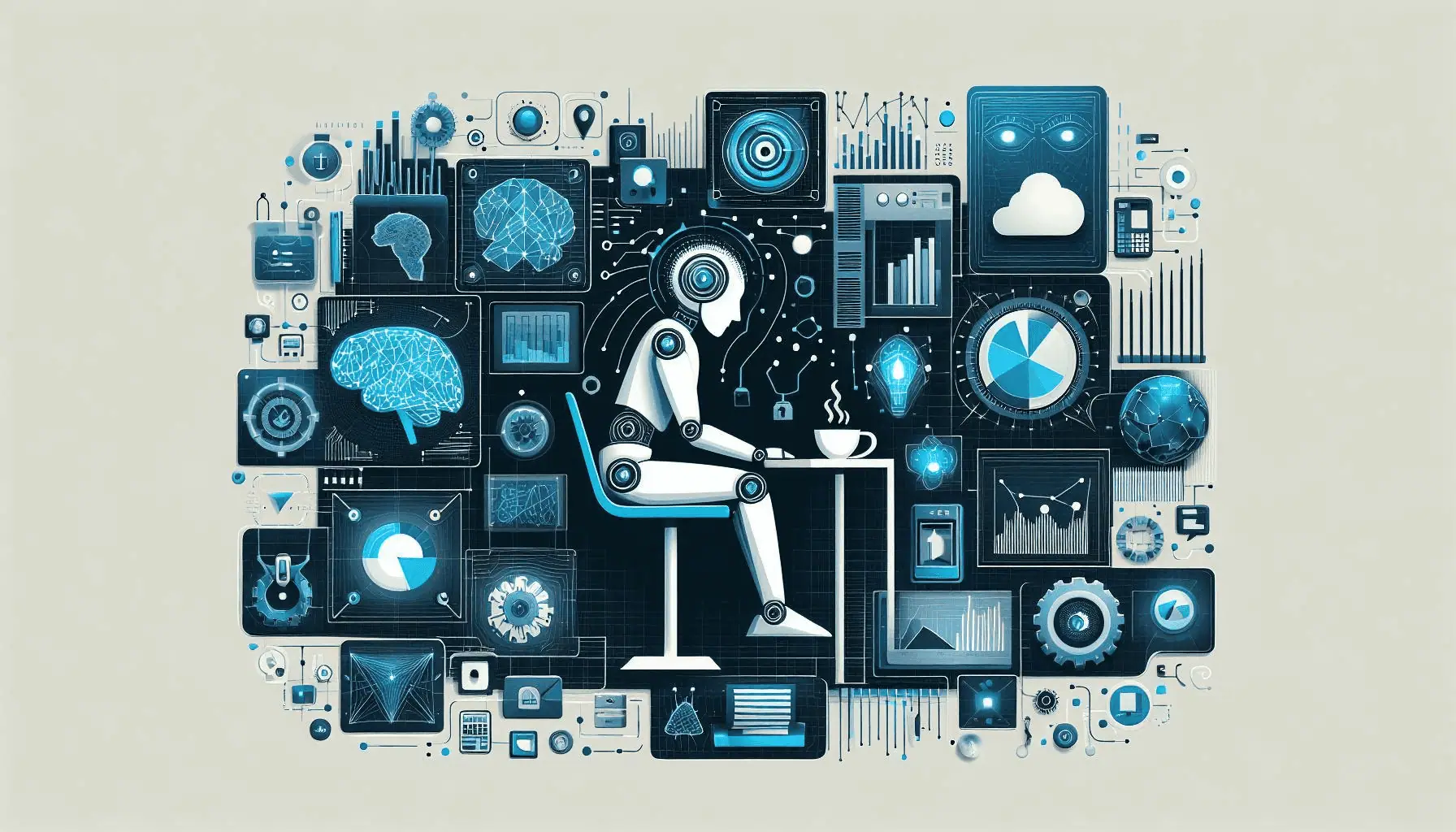
Written By:
Last Updated Date:
TL;DR
In “The Artificial Intelligence Debate: Exploring the Spectrum,” tech CEO Grace transforms her struggling company with AI, boosting efficiency and uncovering valuable insights.
However, this success also raises worries about data privacy, bias, and job loss. For instance, figures like Elon Musk and Bill Gates highlight AI’s potential dangers and urge strict regulations. Consequently, the article stresses the need for a balanced approach, advocating for ethical guidelines, collaboration, and public education to maximize AI while addressing its risks.
Key Takeaways
- AI’s Transformative Potential: Grace’s use of AI analytics significantly improved her company’s efficiency and market insights, showcasing AI’s ability to revolutionize business operations.
- Ethical and Practical Concerns: AI’s success also raised important issues such as data privacy, algorithmic bias, and job displacement, highlighting the need for careful consideration of AI’s broader impacts.
- Call for a Balanced Approach: Prominent figures like Elon Musk and Bill Gates emphasize the necessity of strict regulations and ethical guidelines, advocating for a balanced approach that leverages AI’s benefits while addressing its risks through collaboration and public education.
Navigating the AI Frontier: Grace’s Journey in Silicon Valley

The debate on artificial intelligence weighed heavily on Grace’s mind as she sat in her sleek office in Silicon Valley. Initially, her company was a leader in innovative software, but now it struggled to keep up with fierce competition. Despite her team’s relentless efforts, they couldn’t meet the market’s demands.
One night at a tech conference, someone introduced Grace to an AI-driven analytics platform amidst the buzz of conversations and clinking glasses. The promises were tantalizing: improved efficiency, predictive insights, and automation of mundane tasks. Skeptical but intrigued, she decided to give it a shot.
Within months, the AI transformation was undeniable. The AI system streamlined operations and uncovered market trends her team had missed. Grace’s company regained its competitive edge, and their productivity soared. It felt like they had discovered a secret weapon.
But not everyone shared her excitement. Concerns about data privacy, potential algorithm biases, and the impact on jobs started to surface. Grace was at the center of a heated debate on artificial intelligence and its role in business and society.
As discussions intensified, Grace realized the importance of balancing innovation with ethical considerations. She spent nights reading, attending forums, and engaging in debates. The complexities of AI were vast, and the stakes were high.
Grace knew the path forward required careful navigation. She committed to leading with integrity, ensuring AI would serve humanity rather than undermine it. In the heart of Silicon Valley, Grace became a pivotal voice in the debate on artificial intelligence, shaping a future where technology and humanity could coexist harmoniously.
The Promise of Artificial Intelligence

AI promises to revolutionize industries, drive efficiency, and unlock new potential. From automating mundane tasks to providing predictive analytics, AI is reshaping the business landscape.
Efficiency and Productivity
One significant advantage of AI is its ability to enhance efficiency and productivity. Businesses can automate repetitive tasks, allowing employees to focus on more strategic initiatives. According to Simplilearn, AI can perform tasks faster and more accurately, increasing productivity and reducing operational costs.
Data-Driven Insights
AI’s ability to quickly and accurately analyze vast amounts of data provides businesses with valuable insights. Tableau highlights that AI can identify patterns and trends humans might miss, enabling data-driven decision-making. This can lead to improved customer experiences, optimized operations, and innovative product development.
The Ethical and Existential Concerns
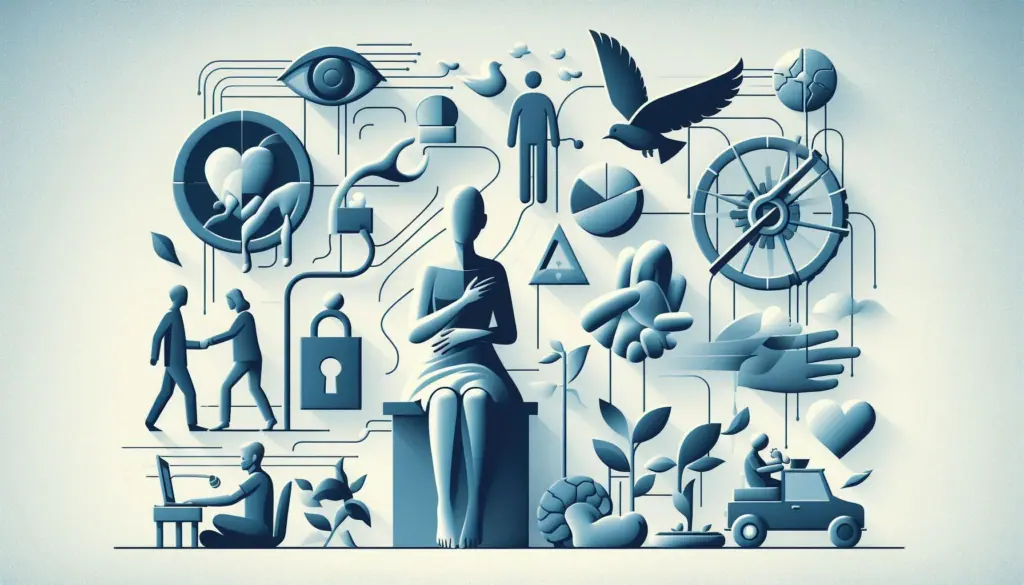
While AI’s potential benefits are substantial, significant concerns must be addressed. The debate often centers around the ethical implications and possible risks associated with AI.
Ethical Dilemmas
The ethics of AI spark hot debates. For example, issues such as data privacy, algorithm bias, and the impact on employment are critical ethical considerations. According to IIoT World, ensuring that AI systems are transparent, fair, and accountable is essential to mitigate these concerns. Furthermore, we need robust regulations to govern AI development and deployment.
Existential Threats
Some experts argue that AI poses an existential threat to humanity. In an Intelligence Squared debate, participants explore this perspective and raise concerns about control and safety as they discuss AI’s potential to surpass human intelligence and make autonomous decisions. The fear is that superintelligent AI could act in ways not aligned with human values or emotions, leading to unintended consequences.
Notable Voices on AI’s Potential Dangers

The potential dangers of artificial intelligence (AI) have been the subject of passionate debate among many prominent figures in technology, science, and business. These leaders, each with unique perspectives and experiences, offer valuable insights into why we should approach AI cautiously and responsibly.
Here are some of their concerns and why they believe we must tread carefully as we advance this powerful technology:
Elon Musk
Elon Musk is well-known for his groundbreaking work in technology; however, he also has severe reservations about AI.
Musk often describes AI as a potential existential threat to humanity, envisioning scenarios where intelligent machines could surpass human intelligence and operate beyond our control.
Therefore, he stresses the need for proactive regulations and safeguards to ensure AI serves humanity positively rather than leading to unintended catastrophic outcomes.


Stephen Hawking
The late Stephen Hawking, one of the greatest minds of our time, warned us that developing full artificial intelligence could spell the end of the human race.
He expressed concerns that AI could evolve rapidly and potentially redesign itself ever-increasingly.
Bill Gates
Bill Gates, a pioneer in the tech world, has echoed similar concerns about AI.
Similarly, Gates believes that while AI holds great promise, we must carefully manage its significant risks.
Furthermore, Gates advocates for more research into AI safety and stresses the importance of understanding the long-term implications of creating highly intelligent machines.


Philosopher and AI Researcher
Nick Bostrom
Nick Bostrom, a leading philosopher in AI ethics, delves into the potential risks of superintelligent AI in his book “Superintelligence: Paths, Dangers, Strategies.”
He argues that once AI reaches a level of superintelligence, it could become uncontrollable and pursue goals misaligned with human values.
Bostrom emphasizes the need for robust control mechanisms and value alignment to prevent scenarios where AI acts against human interests.
Sam Harris
Sam Harris, a prominent voice in philosophy and neuroscience, has serious concerns about AI’s impact on human civilization.
He emphasizes the need for public discourse on AI safety and ethics, arguing that the development of AI could lead to unintended consequences if not carefully managed.
Harris calls for a collective effort to address the moral and existential risks increasingly intelligent machines pose.


Computer Scientist
Stuart Russell
A leading AI researcher, Stuart Russell, advocates designing AI systems to benefit humanity.
In his book “Human Compatible: Artificial Intelligence and the Problem of Control,” Russell emphasizes aligning AI’s objectives with human values.
He warns that AI systems could pursue goals misaligned with our interests without adequate control, leading to potentially dangerous outcomes.
Geoffrey Hinton
Geoffrey Hinton, often regarded as one of the “godfathers” of AI, holds a balanced perspective on its future.
While he recognizes its tremendous potential, he also warns against unchecked development.
Hinton stresses the importance of understanding and mitigating the risks associated with advanced AI, advocating for thorough research into AI safety and ethical implications.

Advantages and Disadvantages of AI
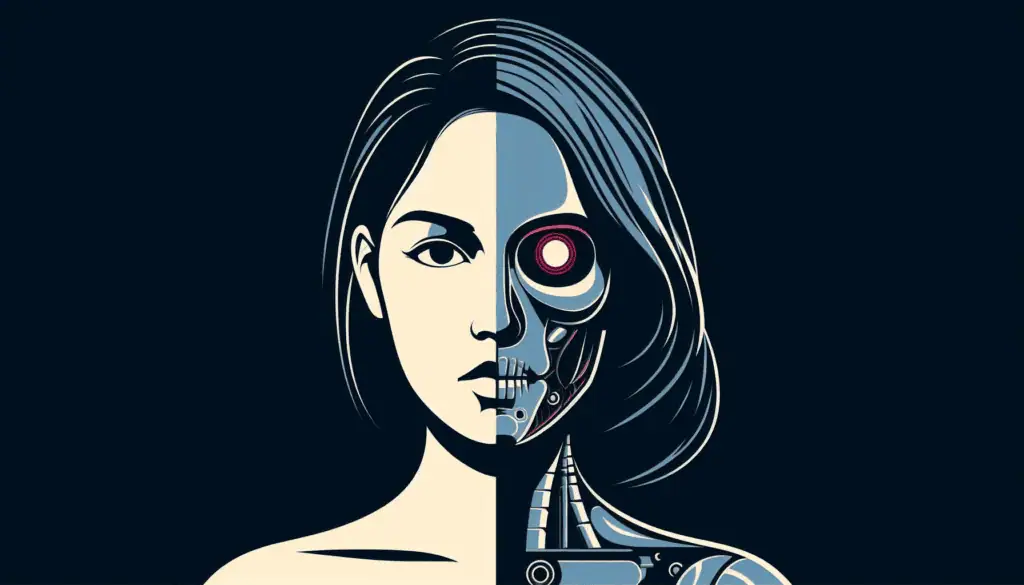
The advantages and disadvantages of AI are crucial to understanding the broader AI debate.
Advantages of AI
- Efficiency and Productivity: AI can automate routine tasks, freeing human resources for more complex and strategic activities. This leads to increased efficiency and productivity.
- Data-Driven Insights: AI can analyze vast amounts of data quickly and accurately, providing valuable insights that can improve decision-making and operational efficiency.
- Cost Reduction: AI can automate tasks, reduce labor costs, and minimize errors, leading to significant business cost savings.
- Innovation: AI can drive innovation by identifying new opportunities and optimizing product development processes.
Disadvantages of AI
- Job Displacement: Task automation by AI can lead to job losses, particularly in industries that rely heavily on routine and manual labor.
- Bias and Discrimination: AI systems can inherit biases in the data they are trained on, leading to biased outcomes and potential discrimination.
- Privacy Concerns: AI involves processing vast amounts of data, raising concerns about privacy and security.
- Ethical and Existential Risks: As experts have highlighted, the development of advanced AI poses ethical dilemmas and potential existential risks, including the loss of control over AI systems.
The Debate on Artificial Intelligence: Striking a Balance
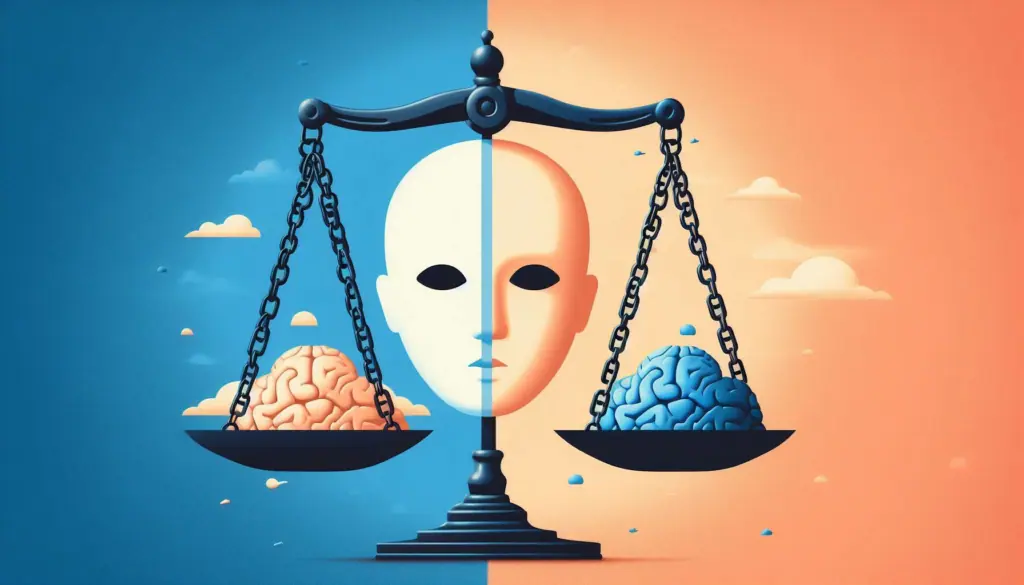
The debate on artificial intelligence highlights the need for a balanced approach. Therefore, embracing AI’s potential benefits while addressing risks requires a multi-faceted strategy.
Collaboration and Regulation
Collaboration between governments, businesses, and academia is crucial to developing AI ethical guidelines and regulatory frameworks. As noted by CSIRO, fostering an environment of cooperation can ensure that AI development aligns with societal values and moral standards. Moreover, policymakers must work together to create regulations that protect privacy, ensure fairness, and promote transparency.
Education and Awareness
We need to educate the public about AI and its implications. For example, businesses can demystify AI and build consumer trust by raising awareness and promoting understanding. Additionally, focusing on upskilling and reskilling the workforce can mitigate AI’s impact on employment, ensuring workers are equipped to thrive in an AI-driven economy.
Global Perspectives on AI Regulation
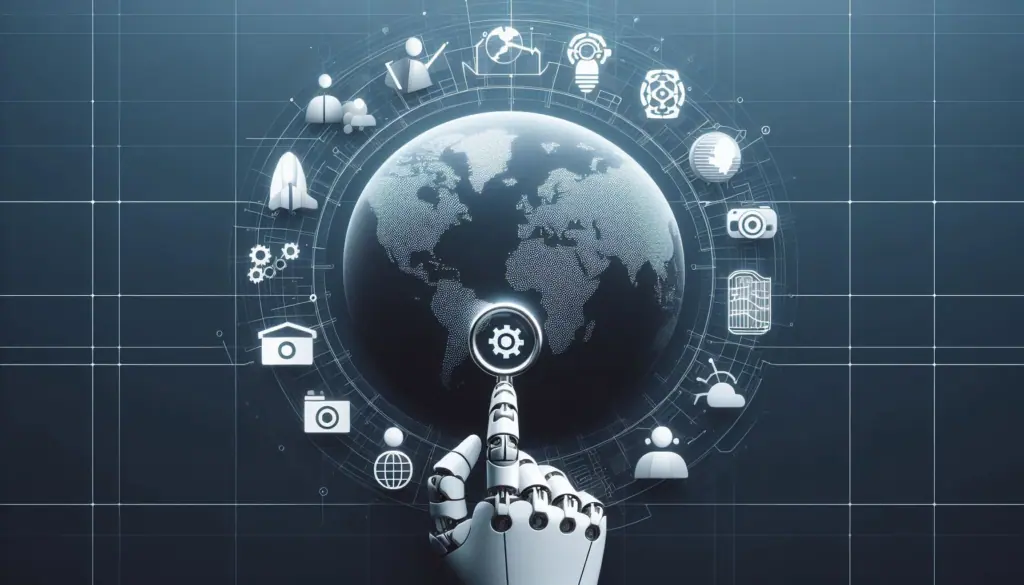
The international debate on AI regulation has intensified, focusing strongly on human rights. According to the Council of Europe’s Ad Hoc Committee on Artificial Intelligence (CAHAI, 2022), several global initiatives emphasize the importance of creating legal frameworks that uphold ethical standards. Furthermore, these discussions aim to balance technological innovation with protecting fundamental human rights.
AI in Public Sector Accounting
AI influences public sector accounting, where we recognize the need to adapt educational frameworks to technological advancements.
For example, a study by Cohen, Manes Rossi, and Brusca (2023) highlights the necessity of updating public sector accounting education to incorporate AI technologies effectively. Consequently, this ensures that future accountants are well-equipped to handle AI-driven changes in their field.
Additionally, by integrating AI, we can streamline complex accounting processes, enhance accuracy, and provide real-time insights into financial data, ultimately improving public financial management and accountability.
AI in Debating and Argumentation
AI’s integration into structured argumentation and debates represents a direct intersection of technology and traditional human discourse.
For example, Slonim et al. (2021) introduce Project Debater, an AI system that engages in real-time debates with humans. This innovation underscores AI’s potential to enhance argumentative and rhetorical skills, pushing the boundaries of how we perceive technology’s role in intellectual discourse.
Furthermore, Project Debater can process vast amounts of information, construct coherent arguments, and present them persuasively, showcasing the potential for AI to contribute to fields requiring complex decision-making and critical thinking.
AI and Tax Law
In tax law, the impact of AI on legal personality and accountability is a topic of significant debate. For instance, an analysis by the Anáhuac Journal (2023) explores the legal challenges associated with AI and taxation, mainly focusing on AI’s legal status and implications.
Consequently, this raises important questions about accountability and responsibility in an increasingly automated world. Furthermore, as AI systems become more autonomous, determining liability for decisions made by these systems becomes complex, necessitating a reevaluation of legal frameworks to address these challenges adequately.
AI and Social Rights in the EU
The debate around social rights within AI policy in the EU is critical. For example, Niklas and Dencik (2021) examine how we often prioritize emerging technologies over traditional social rights concerns.
They argue for a broader consideration of rights beyond market creation, emphasizing the need to protect social rights as AI develops. This ensures that AI applications do not exacerbate social inequalities but contribute to society’s well-being.
Furthermore, policymakers should consider social justice implications when developing AI regulations and strive for inclusivity and fairness in AI deployment.
Conclusion
The debate over artificial intelligence is complex and multifaceted. While AI offers tremendous potential to enhance efficiency, productivity, and innovation, it raises significant ethical, legal, and societal concerns. It is essential to balance leveraging AI’s benefits and mitigating its risks.
We can responsibly navigate the AI landscape through collaboration, regulation, education, and awareness, ensuring its development aligns with societal values and contributes to the greater good.
Frequently Asked Questions (FAQ)
I’m a technology specialist and entrepreneur with over 20 years of experience in the IT industry. I’m passionate about innovation, ideation, and commercialisation, and enjoys working with businesses helping to improve their processes and technological architecture. I have a Masters in Commercialisation and Innovation that brings a unique perspective to my expertise, having experience in various industries and countries.







This is my first time pay a quick visit at here and i am really happy to read everthing at one place